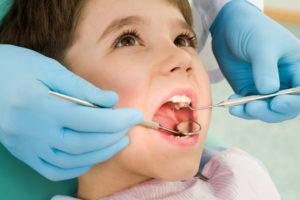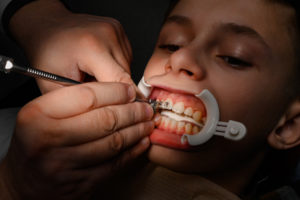As a medical professional, you want to ensure that your patients receive the best possible care, even in dental or orthodontic emergencies. Accidents can happen anywhere, including the dental chair. This is why it’s important for dental and orthodontic practitioners to be well-versed in Pediatric Advanced Life Support (PALS). In this article, we’ll explore the essential role that online PALS certification plays in dental and orthodontic care, and how it significantly impacts the well-being of young patients.
Unraveling The Essentials of PALS Certification
The PALS certification is outlined to provide medical practitioners with the skills and knowledge needed to tackle emergency situations involving infants and children. It covers a wide range of critical scenarios, including cardiac arrest, respiratory distress, and shock.
You might wonder how PALS certification applies to dental and orthodontic contexts. Well, in dental offices and orthodontic clinics, children are often the primary patients. The dental environment itself, with its use of anesthesia, medications, and potential allergens, can pose risks to young patients. Certain procedures can lead to unexpected complications, such as allergic reactions or respiratory problems. PALS certification ensures that dental and orthodontic practitioners are well-prepared to respond quickly and effectively to such emergencies, minimizing risks to their young patients’ lives.
Emergencies in Dental and Orthodontic Care: Why PALS is Important
Dental and orthodontic emergencies can arise unexpectedly. Let’s look at some potential emergencies that dental and orthodontic practitioners may encounter and understand why PALS certification is key in these situations.
During dental procedures, children can experience allergic reactions to substances, such as local anesthetics or latex gloves. These reactions can range from mild to severe, with symptoms like hives, swelling, and difficulty breathing. PALS certification helps practitioners to promptly recognize the signs of an allergic reaction, administer appropriate medications, and manage the situation until emergency medical services arrive.
Also, dental procedures, especially those involving sedation or anesthesia, can cause respiratory problems in children. Respiratory distress or obstruction may occur due to compromised airways, aspiration, or adverse reactions to medications. With PALS certification, dental and orthodontic professionals are able to assess and manage respiratory emergencies successfully. They can also maintain airway patency, perform suitable ventilation techniques, and utilize advanced equipment when necessary to ensure the child’s breathing is restored and maintained.
Although rare, cardiac arrest can occur during dental or orthodontic procedures, especially in children with underlying cardiac conditions. Recognizing cardiac arrest promptly and initiating immediate cardiopulmonary resuscitation (CPR) can make a life-or-death difference. PALS certification ensures that dental and orthodontic practitioners are abreast with pediatric CPR techniques, including chest compressions, defibrillation, and drug administration. Their proficiency in these life-saving interventions increases the chances of successful resuscitation and optimal patient outcomes.
PALS Certification in Action within a Dental Care Setting
Imagine a busy dental office, filled with children and parents eagerly awaiting their appointments. Among them is my niece, Sky, a five-year-old girl scheduled for a routine dental cleaning. Little did anyone know that a beautiful ordinary day would take an unexpected turn.
As Sky’s dental hygienist began the cleaning, she noticed a sudden change in her attitude. The once cheerful girl appeared uncomfortable and struggled to catch her breath. The hygienist quickly noticed the signs of a respiratory emergency and went into action, thanks to her PALS certification.
With her training, she stayed calm and assessed Sky’s condition. My niece was having an allergic reaction, which was likely caused by a cleaning agent. Without wasting a moment, she administered the correct medication to relieve Sky’s symptoms and ensure her safety.
The dental office had a solid emergency response plan in place, developed with guidance from their PALS-certified staff members. The team coordinated their efforts exceptionally, continuously monitoring Sky’s vital signs and providing their support until emergency medical services arrived. Sky was immediately stabilized and transported to the hospital for further treatment.
This real-life case tells the pivotal role that PALS certification plays in dental emergencies.
The Benefits of PALS Certification for Dental and Orthodontic Practitioners
PALS certification supplies practitioners with a solid foundation in emergency management, enabling them to identify and address risks on time. By applying the principles learned during PALS training, dental professionals create a safer treatment environment and ensure the well-being of their pediatric patients.
Secondly, obtaining PALS certification demonstrates a duty to excellence and a devotion to giving your patients the best care. Patients and their families take comfort in knowing that their dental or orthodontic practitioner possesses the skills to handle emergencies competently. This reputation for preparedness enhances the standing of a dental practice within the community and attracts new patients seeking reliable and trustworthy care.
Finally, in today’s litigious society, dental and orthodontic practitioners must be vigilant in minimizing potential legal and ethical concerns. PALS certification serves as a valuable risk management tool, ensuring practitioners handle emergencies and mitigate any associated liabilities. By staying up-to-date with the latest emergency protocols through regular recertification, dental professionals can stay ahead of potential legal issues and uphold their ethical obligations to their patients.
How to Gain PALS Certification for Dental and Orthodontic Practitioners
It is vital to select a reputable and accredited training provider. Dental and orthodontic professionals can register for PALS certification courses through the United Medical Education website. By creating a free student account, individuals gain access to training materials and resources required to master the principles of PALS. United Medical Education also offers free practice exams to help students prepare for the PALS final exam, increasing their chances of success.
PALS Certification – A Vital Tool for Pediatric Dental and Orthodontic Care
By investing in PALS certification, dentists and orthodontists can face emergencies with no fear or panic. They will also be able to access expanded job opportunities, and expand the scope of their practice.
Don’t wait any longer—take the initiative to acquire PALS certification and make a significant difference in the field of pediatric dental and orthodontic care. Visit the United Medical Education website to begin your journey toward becoming a PALS-certified professional.




